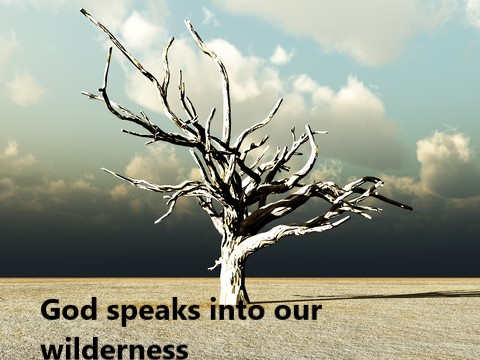Enter the Wilderness…
Luke 3 Are you in the wilderness? What is it like? It is a quiet place apart from the hustle and bustle of everyday life. It may be a place for wild animals to hunt and be hunted. But it is also a place where God comes to speak to our hearts as He did […]

